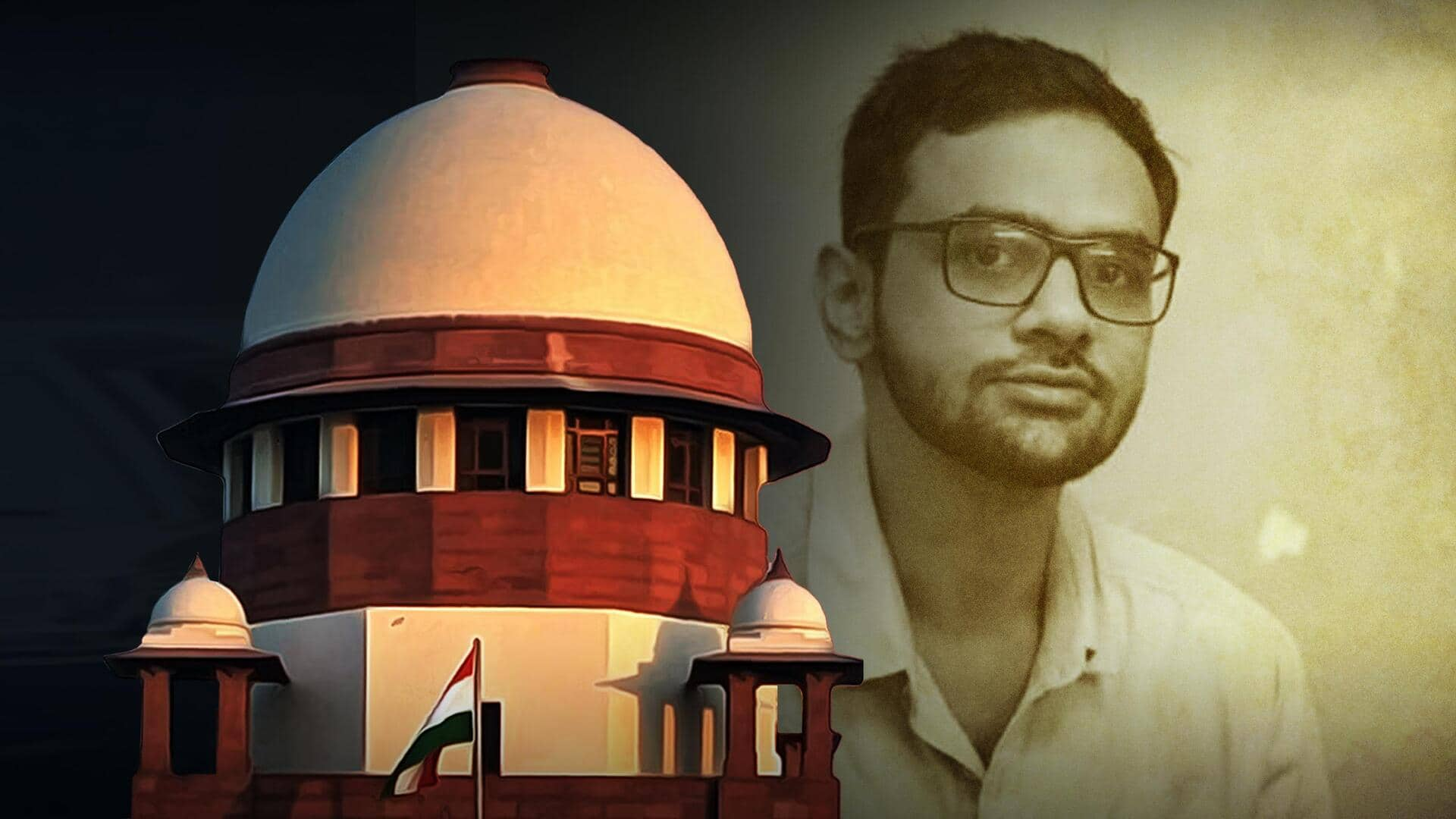
Umar Khalid withdraws bail plea from SC in UAPA case
What's the story
Umar Khalid, a former student leader from Jawaharlal Nehru University (JNU), has decided to withdraw his bail plea from the Supreme Court (SC) in the Unlawful Activities Prevention Act (UAPA) case.
Khalid is accused of being involved in the 2020 Delhi riots.
After informing the court of his intention to seek bail from the trial court again, the SC permitted him to withdraw his plea.
Notably, Khalid has been in jail for more than three years now.
Context
Why does this story matter?
According to reports, the former JNU student is accused of being one of the "masterminds" of the February 2020 riots in north-east Delhi.
The violence resulted in 53 deaths and over 700 injuries.
The clashes erupted during the protests against the Citizenship (Amendment) Act (CAA) and the National Register of Citizens (NRC).
Khalid was charged under the stringent UAPA.
Statement
Reason for withdrawal is 'change in circumstances'
Kapil Sibal, a senior advocate representing Khalid, informed Justices Bela M Trivedi and Pankaj Mithal of a "change in circumstances."
Sibal said, "We will try our luck again before the trial court. We wish to withdraw the bail matter."
Khalid had previously challenged the Delhi High Court's decision from October 18, 2022, which denied his bail request.
Bail plea details
Khalid challenged the constitutional validity of UAPA provisions
In addition to his bail plea, Khalid has submitted a writ petition questioning the constitutionality of specific provisions of the UAPA, including Section 43D, which imposes strict bail conditions.
The same bench was set to hear this petition on Wednesday.
Sibal clarified that he was not withdrawing this petition and added, "We will argue the legal question that we have raised in the writ petition."
Background
Delhi Police opposed his bail
The Delhi Police had opposed Khalid's bail plea in the top court, labeling him as the alleged "mastermind" behind the 2020 riots.
He was arrested on September 13, 2020.
According to police, keeping Khalid in judicial custody was "warranted, essential and necessary for fearless, truthful and freely deposition of protected witnesses by the trial court."